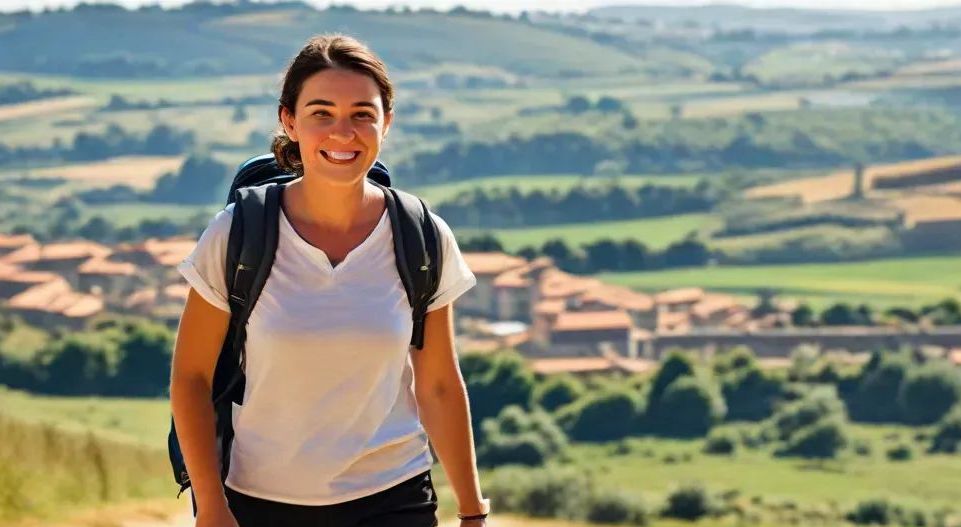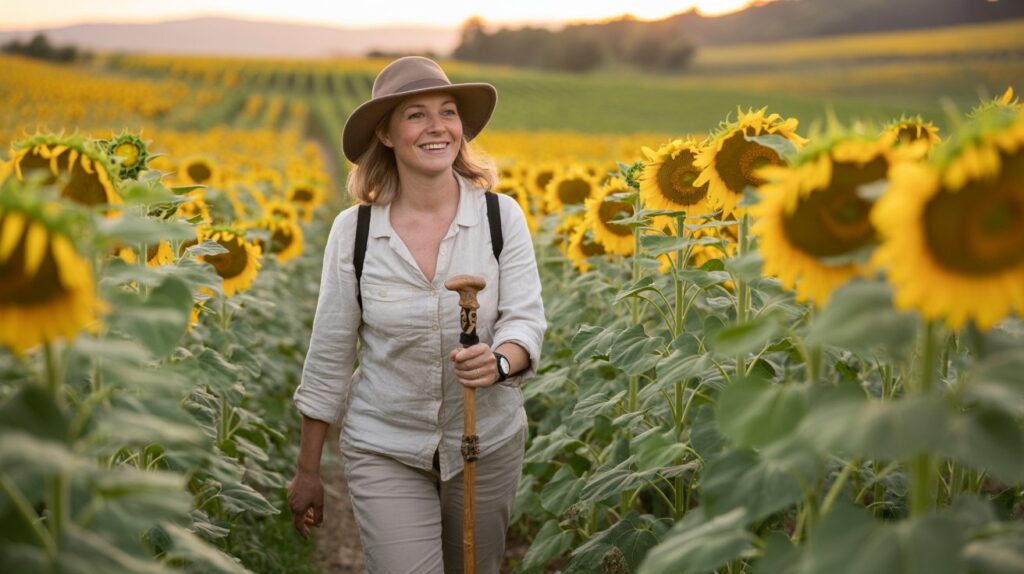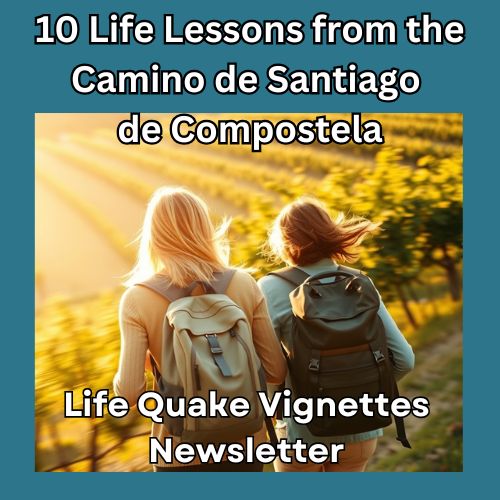What this is: A deep dive into the provocative question about whether kindness represents the ultimate expression of emotional intelligence, exploring why the most successful executives, entrepreneurs, and professionals are discovering that their greatest leadership asset isn’t ruthlessness, it’s radical kindness.
What this isn’t: Another fluffy “be nice” article. This isn’t about fake smiles in the boardroom or toxic positivity. It’s about the neuroscience, psychology, and real-world application of kindness as a measurable skill that determines whether you burn out or break through.
Read this if: You’re achieving externally but feeling empty internally. You’re climbing the ladder whilst wondering if there’s more to life than the next milestone. You suspect that the very traits that got you here, perfectionism, control, and relentlessness, might be the ones keeping you stuck. You’re ready to explore whether kindness (especially to yourself) might be the missing piece in your leadership puzzle.
Five Key Takeaways
- Kindness is strategic, not soft: Research shows emotionally intelligent leaders who prioritise kindness and psychological safety create teams that are twice as likely to meet financial targets and demonstrate higher productivity. Your capacity for kindness directly impacts your bottom line.
- Self-kindness isn’t selfish; it’s essential: High achievers often excel at compassion for others, whilst being brutally harsh to themselves. This double standard creates chronic stress, decision fatigue, and eventually burnout. Treating yourself with the same kindness you extend to others is the foundation of sustainable success.
- Kindness requires courage, not weakness: It takes far more emotional intelligence to remain kind under pressure than to snap, judge, or withdraw. Kindness in high-stakes situations is a sign of emotional regulation, not emotional fragility.
- The kindness gap costs you: When there’s a disconnect between how kind you are to others versus yourself, you create an internal conflict that drains energy, undermines confidence, and sabotages relationships. Closing this gap releases extraordinary creative and emotional resources.
- Kindness is learnable: If you can learn to read a balance sheet or master strategic planning, you can learn to be kinder. Emotional intelligence, including the capacity for kindness, is a skill set that improves with practice, not a fixed personality trait.
Introduction: The Question That Changes Everything
The question that stops high achievers in their tracks: is, “If kindness is truly a mark of emotional intelligence, why are so many successful people so unkind to themselves?”
You’ve mastered the art of compassionate leadership. You coach your team through challenges, celebrate their wins, and forgive their mistakes. You’re the person colleagues turn to for wisdom, the one who remembers birthdays, asks about ageing parents, and notices when someone’s struggling. Your emotional intelligence score would be enviable, your ability to read rooms and navigate complex interpersonal dynamics, impressive.
But the voice inside your head never stops critiquing. The way you berate yourself for a presentation that was 95% brilliant but contained one stumble. How you lie awake replaying conversations, flagellating yourself for what you should have said, done, been. The standards you hold yourself to that would break anyone else.
This is the paradox that’s quietly destroying even the most outwardly successful professionals. You’ve developed extraordinary emotional intelligence in interacting with everyone but yourself. And it’s costing you more than you realise, your health, your relationships, your joy, and ironically, your capacity to sustain the very success you’ve worked so hard to achieve.
The question isn’t whether kindness proves emotional intelligence. The real question is: can you truly claim emotional intelligence if you haven’t learned to extend that same kindness inward?
The Story of Elena Rodriguez: When Success Feels Like Failure
Elena Rodriguez stood at her corner office window, watching the Friday evening exodus below, a river of people flooding toward weekend freedom. At 43, she’d achieved everything she’d set out to accomplish. Senior Vice President of a pharmaceutical company. Six-figure salary. A reputation as the executive who could turn around failing departments. The one who never cracked under pressure.
She pressed her forehead against the cool glass, feeling the beginning of another headache pulsing behind her eyes. The office smelled of stale coffee and the lavender diffuser her assistant had bought her, an ironic gift for someone who preached work-life balance whilst answering emails at 11 pm.
Her phone buzzed. Another message from her sister: “Mum’s worried about you. Says you sound tired. Call her?” Elena’s thumb hovered over the keyboard, crafting excuses. I’m fine. Just busy. Will call tomorrow. Delete. Tell her not to worry. Delete. She pocketed the phone without responding.
The truth was more complicated. She was tired, bone-deep exhausted in a way that luxury holidays couldn’t touch. But she couldn’t explain it without sounding ungrateful. How do you tell people you’re drowning in success?
That morning, she’d sat in her leadership team meeting, listening to Marcus present quarterly results. When he’d stumbled over a slide, forgotten a statistic, she’d watched him flush red with embarrassment. “Take your time,” she’d said warmly. “We’ve all been there. The numbers are solid, that’s what matters.”
Later, she’d praised Sarah’s innovative approach to client retention, even though the rollout had been messy. “The concept is brilliant. We’ll iron out the execution together.”
Then she’d returned to her office and spent 45 minutes excoriating herself over an email she’d sent to the board. One typo. One missing comma in a 2,000-word strategic proposal. She’d reread it seventeen times, stomach clenching, imagining their judgment. Sloppy. Unprofessional. Proof you’re not ready for the C-suite.
The kindness she extended so naturally to others evaporated when she turned it on herself.
By Wednesday, the headaches had intensified. By Thursday, she’d cancelled dinner with her husband, claiming deadline pressure. The truth? She couldn’t face his concerned eyes, the gentle questions about whether she was okay. She wasn’t okay, but she didn’t know how to fix it without admitting she was somehow failing at success itself.
Friday afternoon, her assistant knocked. “Dr Montagu’s office confirmed your retreat booking for next month. They’ve sent the pre-retreat questionnaire.”
Elena had booked the Inner Camino walking retreat six months ago during a rare moment of clarity at 3 am, doom-scrolling through articles about executive burnout. A week in south-west France, walking the Camino de Santiago, meditation, storytelling circles with horses (horses!), and a doctor who specialised in stress management for professionals. It had seemed simultaneously essential and indulgent.
Now, staring at the questionnaire, one question stopped her cold: “On a scale of 1-10, how kind are you to yourself?”
Her pen hovered. To her team? Nine. To clients? Eight. To strangers? Seven. To herself?
The pen stayed suspended. She couldn’t write the number. Couldn’t face that particular truth on a Friday evening when she was too tired to maintain her carefully constructed defences.
Instead, Elena closed the questionnaire and opened her laptop. Another weekend of catching up stretched ahead, that familiar cocktail of obligation and avoidance. She’d answer the question later. When she was ready. When she’d figured out how to admit that the woman everyone believed was thriving was actually drowning in her own impossibly high standards.
The office lights hummed overhead. Outside, the city glittered with possibility. Inside, Elena Rodriguez, the woman who’d mastered every professional challenge, couldn’t answer a simple question about kindness.
Because the truth was terrifying: she’d forgotten how.
Why Kindness IS Emotional Intelligence (And Why Most Professionals Get This Wrong)
Let’s cut through the noise. Emotional intelligence encompasses five core competencies: self-awareness, self-regulation, motivation, empathy, and social skills. Research increasingly shows that kindness, particularly self-compassion, underpins all five dimensions, and leaders who demonstrate compassionate leadership create more engaged, innovative, and resilient teams.
Here’s what makes kindness the ultimate proof of emotional intelligence: it requires the simultaneous activation of every EI skill. You need self-awareness to notice when someone (including yourself) needs compassion. You need self-regulation to choose kindness when anger, frustration, or judgment feels more natural. You need empathy to understand what kindness looks like from another’s perspective. You need social skills to deliver kindness in ways that actually help rather than patronise.
And here’s where successful professionals get spectacularly stuck: they develop sophisticated emotional intelligence for external relationships whilst maintaining primitive, harsh inner dialogues. You’d never tell a team member they’re worthless after one mistake, but you might think it about yourself. You’d never demand a colleague work through illness, but you override your own body’s signals routinely.
This split creates what psychologists call “compassion dissonance”, the exhausting gap between how you treat others and how you treat yourself. Studies show this dissonance correlates with higher rates of burnout, anxiety, and depression, particularly among high-achieving professionals who pride themselves on their empathy for others, whilst being merciless with themselves.
The neuroscience is fascinating. When you extend kindness to others, your brain releases oxytocin, the bonding hormone that reduces stress and increases feelings of trust and safety. But here’s the twist: self-kindness triggers the same neurochemical response. Your brain doesn’t differentiate between kindness directed outward and kindness directed inward. Both activate the same reward centres, both reduce cortisol, both strengthen neural pathways associated with emotional regulation.
Yet somehow, we’ve created a cultural narrative that self-kindness is self-indulgence, that pushing yourself harder is nobility, that internal criticism drives excellence. The research tells a different story. Self-compassionate people demonstrate greater resilience in the face of failure, recover from setbacks more quickly, and maintain motivation over longer periods than their self-critical counterparts. They don’t achieve less because they’re kind to themselves. They achieve more.
For executives, entrepreneurs, and professionals operating in high-pressure environments, this matters enormously. Your capacity to remain kind under stress, to yourself and others, directly predicts your longevity in leadership roles. It determines whether your team trusts you enough to bring bad news early. It influences whether you make decisions from clarity or panic. It shapes whether you end up with sustainable success or spectacular burnout.
Kindness isn’t the soft skill of emotional intelligence. It’s the load-bearing wall. Remove it, and everything else eventually crumbles.
The Ripple Effect of Choosing Kindness
Practising self-kindness doesn’t just change you. It changes everyone around you.
When Elena (our VP from earlier) finally began practising self-compassion during her Inner Camino retreat, something unexpected happened. As she learned to notice her harsh inner voice without judgment, to respond to her own struggles with the same warmth she’d always shown others, her entire leadership style evolved.
She stopped expecting her team to read her mind about unrealistic standards because she stopped imposing impossible standards on herself. She became more comfortable with imperfection, which created psychological safety for innovation. Her team started taking more creative risks because failure was no longer treated as catastrophic. Productivity increased because people weren’t paralysed by fear of judgment.
But the transformation went deeper. Elena’s teenage daughter noticed her mother laughing more, being present during dinners rather than mentally rehearsing tomorrow’s presentations. Her husband watched his wife sleep through the night for the first time in years. Her elderly mother received phone calls that weren’t rushed, where Elena actually listened rather than multitasking.
This is the revolutionary truth about kindness as emotional intelligence: it’s contagious. When you learn to treat yourself with compassion, you unconsciously give others permission to do the same. Your kindness becomes a model, a possibility, a pathway.
Think about your sphere of influence. Your team, your family, your community. Now imagine each of those people learned, by watching you, that kindness (especially self-kindness) wasn’t weakness but wisdom. That emotional intelligence included the courage to be gentle with yourself. That success didn’t require self-sacrifice.
The mathematician in you can calculate that ripple effect. If you influence ten people, and each of them influences ten more, you’ve impacted a hundred lives. If each of those hundred models self-compassion for others, you’ve created a cultural shift. This isn’t naive optimism. It’s basic systems thinking applied to emotional wellness.
In organisations, this transformation looks like reduced absenteeism, decreased turnover, increased engagement, and improved customer satisfaction. In families, it manifests as stronger relationships, better mental health outcomes, and more resilience through challenges. In communities, it creates networks of support that transcend traditional boundaries.
The shift from self-criticism to self-kindness isn’t just personal development. It’s social evolution.
Exploring the Gap
Take 20 uninterrupted minutes with a journal. Set a timer. Write without editing, without judgment, letting your pen move freely across the page.
Prompt: “Write a letter to yourself from the perspective of someone who loves you unconditionally. What would they say about how you treat yourself? What would they want you to know about your worth, your efforts, your struggles? What kindness would they wish you could extend to yourself?”
Now read what you’ve written. Notice the gap between how others see you and how you see yourself. That gap is where work is needed. That gap is costing you energy you can’t afford to waste.
Further Reading: Three Unconventional Books on Kindness and Emotional Intelligence
1. “The Compassionate Mind” by Paul Gilbert
This isn’t your typical self-help book. Gilbert, a clinical psychologist, explores the evolutionary biology of compassion, explaining why our brains developed threat-focused thinking and how we can deliberately cultivate compassion circuits. Perfect for analytical minds who need the science before they’ll trust the practice. The neuroscience alone is worth the price.
2. “Radical Compassion” by Tara Brach
Brach offers the RAIN technique (Recognise, Allow, Investigate, Nurture), a practical framework for responding to difficult emotions with kindness rather than avoidance. What sets this apart is her integration of Western psychology with Buddhist wisdom, making ancient practices accessible to modern professionals who don’t have time for mysticism but desperately need the medicine.
3.”The Gifts of Imperfection” by Brené Brown
Brown’s research on shame, vulnerability, and wholehearted living directly addresses why kindness feels so difficult for high achievers. Her work on perfectionism as a shield rather than a strategy helps explain why successful people often struggle most with self-compassion. The book offers practical guidance for releasing impossible standards without sacrificing excellence.
P.S. For a practical, accessible daily practice, my book ‘Embracing Change in 10 Minutes a Day’ offers bite-sized exercises specifically designed for time-poor professionals. It includes self-compassion practices that fit into even the most demanding schedules, because transformation doesn’t require hours; it requires consistency.
Real Voices
From a Camino Retreat Guest:
“I arrived at Dr Montagu’s retreat utterly depleted, successful on paper but dying inside. I’d spent 20 years building a consultancy, convincing myself that the relentless self-criticism was what made me excellent. During the week walking the Camino, something shifted. In the storytelling circles with the horses (who have zero tolerance for inauthenticity), I finally saw how cruel I’d been to myself. Margaretha’s gentle guidance, combined with the rhythm of walking and the space for reflection, helped me understand that kindness wasn’t weakness, it was wisdom. Six months later, I’m leading differently, living differently. The business is thriving, but more importantly, so am I.” — S Mitchell, Management Consultant, London
From a Virtual Storytelling Circle Member:
“Joining Dr Montagu’s online storytelling circle was the smartest investment I’ve made in my wellbeing. As a working mother running a startup, I thought I didn’t have time for ‘soft’ practices. But the circle taught me that sharing my story, being witnessed without judgment, and learning from others’ journeys wasn’t indulgent, it was essential. The emotional intelligence I’ve developed through these sessions has transformed my leadership. My team tells me I’m more approachable, more authentic. But the real gift is the kindness I’ve learned to show myself. That ripples out to everyone around me.” — J Okonkwo, Tech Entrepreneur, Manchester
Frequently Asked Questions: Kindness and Emotional Intelligence
Q1: Isn’t self-kindness just making excuses for poor performance?
No. Self-kindness isn’t about lowering standards, it’s about changing your motivational strategy. Research shows self-compassionate people maintain high standards but approach failures as learning opportunities rather than character indictments. You can be committed to excellence without being cruel to yourself. In fact, sustainable excellence requires it. Self-criticism might drive short-term results, but it depletes the psychological resources needed for long-term achievement.
Q2: How can I be kind to myself when I genuinely made a mistake that hurt others?
True emotional intelligence means holding two truths simultaneously: you made a mistake AND you’re worthy of compassion. Self-kindness doesn’t mean avoiding accountability. It means responding to your error the way a wise mentor would, acknowledging the harm, making amends, learning from it, and moving forward without excessive rumination. Beating yourself up doesn’t undo the mistake. It just adds suffering without adding wisdom.
Q3: I work in a competitive industry. Won’t kindness make me weak?
This fear reveals a fundamental misunderstanding of what kindness is. Kindness isn’t weakness; it’s strength under control. It takes far more emotional regulation to remain kind under pressure than to react with aggression or withdrawal. Leaders who demonstrate compassion whilst maintaining clear boundaries and high standards are perceived as more competent, not less. Your competitors might confuse cruelty with strength, but your results will prove them wrong.
Q4: How do I start practising self-kindness when my inner critic is so loud?
Start small. Notice when the harsh voice appears without trying to silence it. Name it: “That’s my inner critic.” Then ask: “What would I say to a colleague in this situation?” Apply that same response to yourself. This isn’t about positive affirmations that feel false. It’s about consistent, small redirections from hostility to helpfulness. Over time, new neural pathways form. The Inner Camino approach uses walking meditation and storytelling to create space for this practice, making it physical and embodied rather than purely cognitive.
Q5: Can kindness really change my stress levels, or is this just wishful thinking?
The neuroscience is clear: self-compassion practices measurably reduce cortisol (stress hormone) and increase heart rate variability (a marker of stress resilience). Kindness activates the parasympathetic nervous system, your rest-and-digest mode, counteracting the chronic fight-or-flight that characterises executive stress. This isn’t wishful thinking. It’s basic biology. The question isn’t whether kindness reduces stress, it’s whether you’re willing to practice it consistently enough to experience the benefits.
Conclusion: The Courage to Be Kind
Kindness isn’t the easy path. It’s the brave one.
It takes no courage to maintain the status quo, to keep driving yourself into the ground whilst achieving externally and suffering internally. That’s the default setting for high achievers. It’s what everyone around you is doing. It’s what you’ve always done.
Choosing kindness, especially self-kindness, requires revolutionary courage. It means questioning narratives you’ve built your identity around. It means releasing the belief that cruelty drives excellence. It means risking that terrifying possibility that you might still be worthy even when you’re not performing, producing, or perfect.
Emotional intelligence without kindness is incomplete intelligence. It’s knowing what emotions are happening without knowing how to respond with wisdom. It’s understanding others whilst remaining blind to yourself. It’s building success on foundations that will eventually crack.
The most emotionally intelligent thing you can do is extend to yourself the same compassion you’ve been giving everyone else. Not because you’ve earned it through achievement. Not because you’ve finally done enough. But because kindness is what transforms survival into thriving, success into sustainability, achievement into fulfilment.
Perhaps the question isn’t whether kindness is the ultimate proof of emotional intelligence. Perhaps the question is: what becomes possible when you finally dare to be kind to yourself?
Your Invitation: Walk Toward Wellness
Imagine a week where the loudest sound is your own footsteps on an ancient pilgrim path. Where the only deadline is sunset. Where your harshest critic finally falls silent long enough for your wisest self to speak.
My Camino de Santiago Crossroads walking retreats in the breathtaking south-west of France offer exactly this sanctuary. These aren’t typical holidays. They’re transformational experiences specifically designed for successful professionals who’ve mastered everything except peace.
You walk sections of the legendary Camino de Santiago, the rhythm of walking naturally quieting the mental noise that clutters your daily life. The physical movement releases stress held in your body, whilst the beauty of the French countryside reminds you that there’s more to life than your inbox.
We gather each morning for guided mindfulness and meditation practices, tools you can take home and integrate into even the most demanding schedule. These aren’t esoteric exercises, they’re evidence-based techniques drawn from my experience as a GP specialising in stress management.
But here’s what makes these retreats truly unique: the storytelling circles with my Friesian horses. These magnificent beings have an uncanny ability to mirror our emotional states, offering honest feedback without judgment. In their presence, the masks we wear professionally fall away. You’ll discover aspects of yourself, your capacity for kindness, your untapped resilience, your authentic voice, that have been buried under years of performance pressure.
Throughout the week, you’ll be guided by someone who understands your world intimately. I’ve spent 15 years hosting these retreats because I’ve seen firsthand how they transform lives. My eight non-fiction books on divorce, loss, illness, and crisis have emerged from this work, from witnessing the extraordinary resilience of people who finally gave themselves permission to be human.
The testimonials on my website from 30+ previous guests speak to the lasting impact of this experience. They don’t just return to their lives, they return to themselves.
You’ve earned success. Now it’s time to learn sustainability. Join us on the Inner Camino, where the journey inward meets the path forward.
Learn more and reserve your space










10 Powerful Life Lessons Learned While Walking the Camino de Santiago – a free guide filled with 10 not just “quaint anecdotes” or Instagram-worthy moments (though there are plenty of those) but real transformations from real people who walked the same insight-giving trail you might want to walk one day – Subscribe to my monthly newsletter to Download the Guide

“I am an experienced medical doctor – MBChB, MRCGP, NLP master pract cert, Transformational Life Coach (dip.) Life Story Coach (cert.) Stress Counselling (cert.) Med Hypnotherapy (dip.) and EAGALA (cert.) I may have an impressive number of letters after my name, and more than three decades of professional experience, but what qualifies me to excel at what I do is my intuitive understanding of my clients’ difficulties and my extensive personal experience of managing major life changes using strategies I developed over many years.” Dr M Montagu

